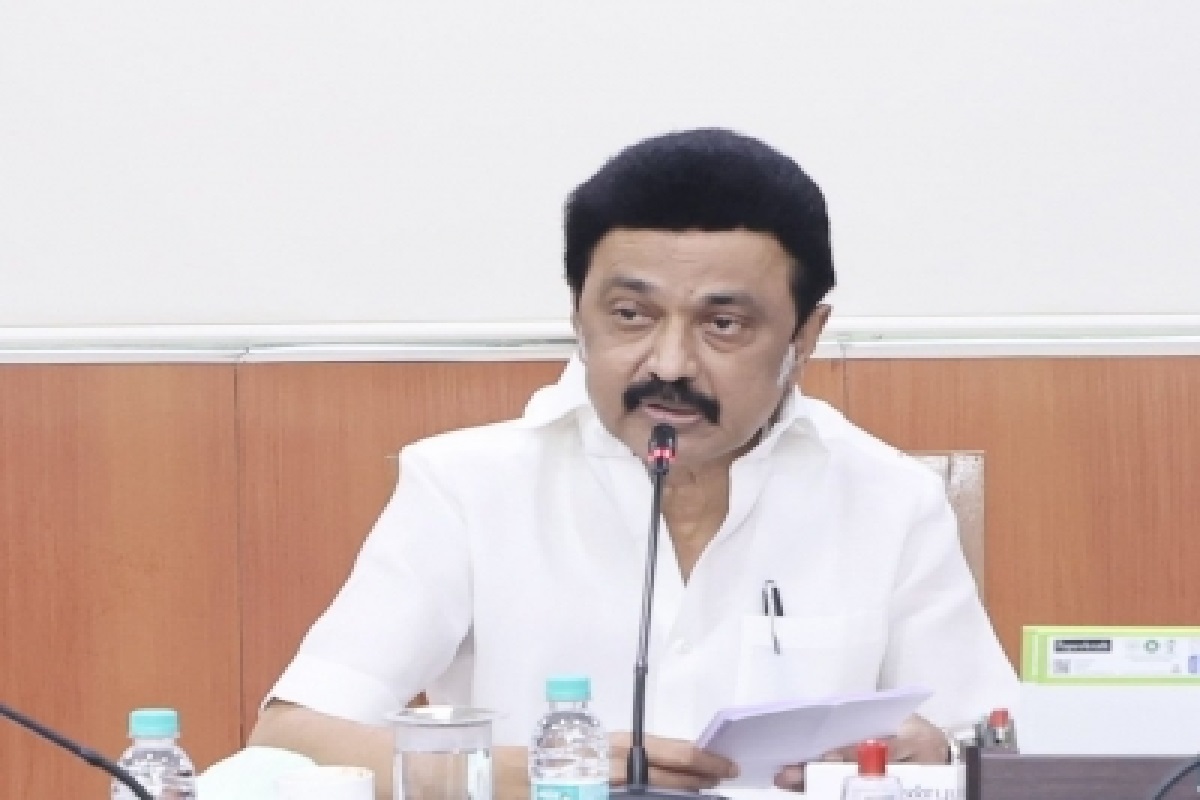Shiv Khera approaches SC, seeks publicity to NOTA as fictional candidate
A bench headed by Chief Justice DY Chandrachud issued the notice to the poll panel.
The DMK’s move was followed by an all-party meeting held by Tamil Nadu Chief Minister M K Stalin on the issue.

M K Stalin (Photo: IANS)
The ruling DMK in Tamil Nadu has called for a review of a Supreme Court order upholding the 10 per cent quota earmarked for Economically Weaker Sections (EWS). The party contended that the quota had given the forward classes a mask to hide behind the term of EWS.
The quota for the EWS in government jobs and educational institutions as per the 103rd Constitutional Amendment had, according to the DMK, provided the upper classes eligibility for “easy exclusive luxurious” reservations.
The DMK’s move was followed by an all-party meeting held by Tamil Nadu Chief Minister M K Stalin on the issue. At the meeting it was decided to oppose the said reservation and take legal recourse against the November 7 SC order.
Advertisement
The petition, filed by senior advocate P. Wilson on behalf of the DMK, said the judgment had gone against the settled law as per a nine-judge Bench of the Supreme Court which put an upper ceiling at 50 per cent, the rest left to merit list candidates.
Advocate Wilson has made out a case that the term EWS had not been clearly defined. On the other hand, the quota benefited a class which was neither affected by social stigma nor was it hampered by lack of opportunities.
The Constitutional Amendment had not provided a justification for economic criteria alone as the basis for providing such reservations. Article 46 and the Constitution had not defined weaker sections, the DMK said.
The DMK petition cited the court’s own seven-judge Bench judgment in the N M Thomas case which said weaker sections did not mean every backward class but the acutely depressed categories comparable economically and educationally to Scheduled Castes and Scheduled Tribes.
The Supreme Court judgment in the EWS case had not explained how a group which had been generationally “bestowed with ‘cultural capital’ that they inherited from their families” could be described as a weaker section of the society.
The petition pointed out that the Sinho Commission report on the basis of which the 103rd Constitutional Amendment itself was said to have come about had claimed that there was no authentic data to support the data of below the poverty line in economically backward classes outside the purview of the reservation net.
Again, the DMK pointed out that the judgment had allowed discrimination by permitting the exclusion of the poor from ST, SC and OBC categories from the 10% reservation quota.
Advertisement